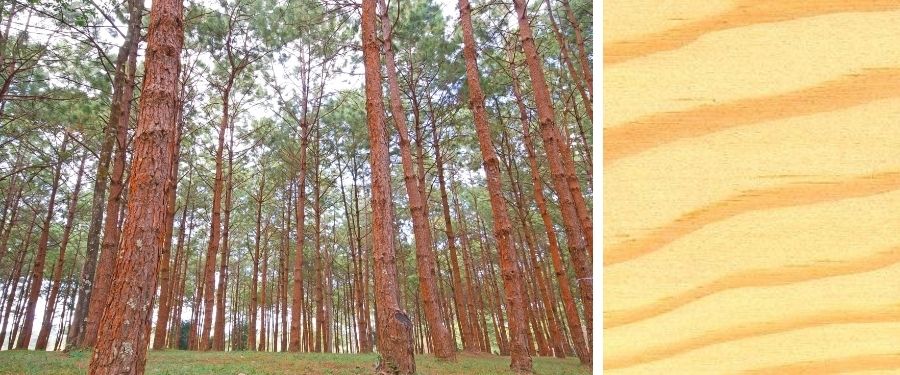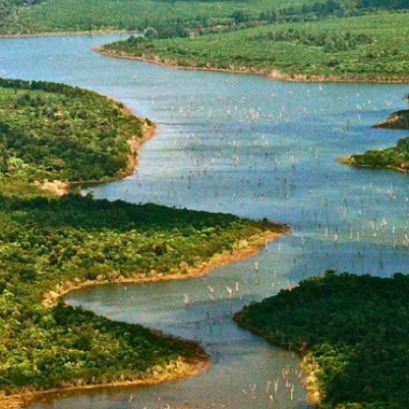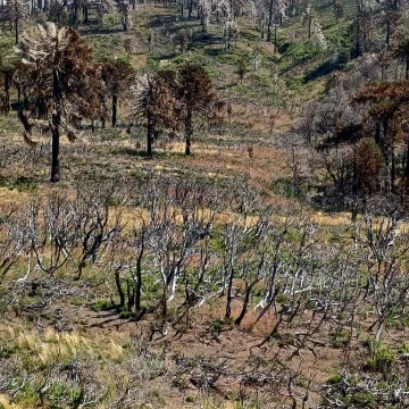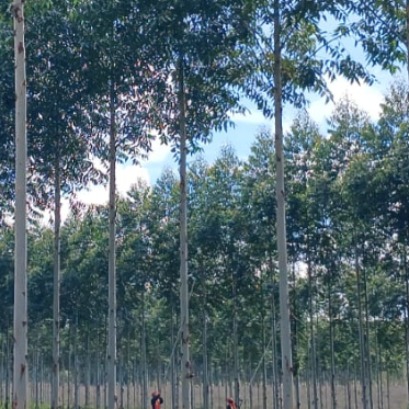
The abundance of pine wood is due in large part to the number of pine species that exist. In this article, we will learn about the characteristics, properties and uses of yellow pine wood, a species native to the southwestern United States.
This species of pine receives the scientific name Pinus Taeda, although we can commonly find it under the name of southern yellow pine, melis pine or Rosemary pine for its distinctive fragrance. These trees are around 30-35 meters tall and normally grow in low humidity environments.
It is considered a fast-growing tree, which is why it is a species that has spread especially in reforestation, as in the case of Argentina.
One of the most striking features is the color of its wood. Yellow pine wood is characterized by its yellowish white sapwood and reddish-brown heartwood.
We can consider it as a stable, soft and semi-light wood. Yellow pine wood is classified as moderately durable against the action of fungi and insects.
When it comes to workability, no problem is found. Sawing, drying, brushing, nailing and finishing is easy, although it should be noted that it is a wood with a lot of resin which can make the finish a little more complicated.
We can find yellow pine wood in indoor furniture; in interior carpentry such as doors, windows, cladding, stairs, friezes; in the form of sheets for decorative coatings and plywood and in carpentry to assemble and in naval constructions as masts. This wood is also highly commercialized for the manufacture of paper pulp and Kraft paper.

IT MAY INTEREST YOU
 The second largest wetland in South America is located in Argentina: what is it?
The second largest wetland in South America is located in Argentina: what is it?
Argentina has national parks that place it in a unique position within South America, competing with 300 others. Which is the largest? South America is home to more than 300 national parks, but many go unnoticed. There are extensive wetlands that have been the subject of major ecological restoration projects, to coastal mountains with deep indigenous heritage. Today we tell you the case of one located in Argentina.
 Specialists from 10 provinces develop forest landscape restoration strategies throughout the country
Specialists from 10 provinces develop forest landscape restoration strategies throughout the country
The program is developed by researchers from INTA, Conicet and the Argentine Wildlife Foundation.
 Paraguay | The plantations became instruments of territorial development and the generation of decent employment, INFONA highlights.
Paraguay | The plantations became instruments of territorial development and the generation of decent employment, INFONA highlights.
Plantings in different phases, control of ants and weeds, pruning and thinning, mechanized harvest, technology applied to the field and complete integration of the production cycle were part of the CREA Forestal proposal in its Technical Update Conference – JAT Forestal 2025. The event took place on Friday, November 14, at Estancia Ñemity, located in San Juan Nepomuceno, Caazapá, where agricultural producers, technicians, contractors, students and companies in the sector met to observe the forestry business of the future in action.






















